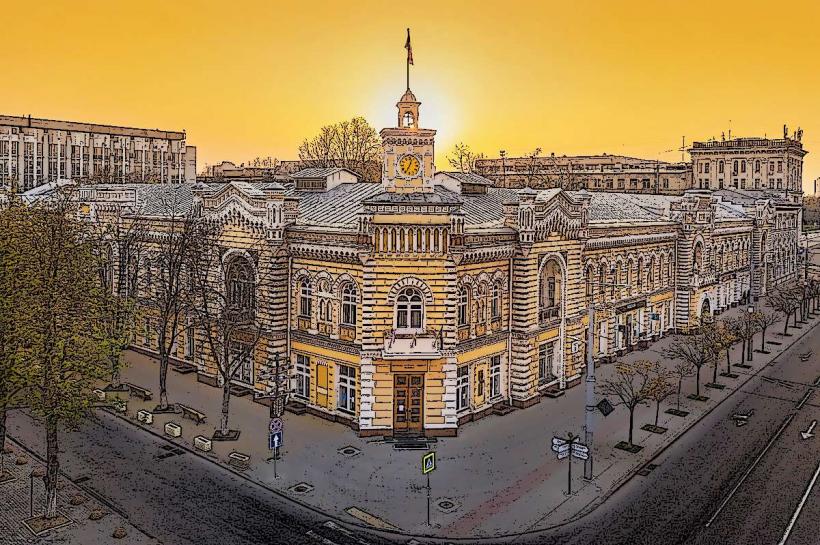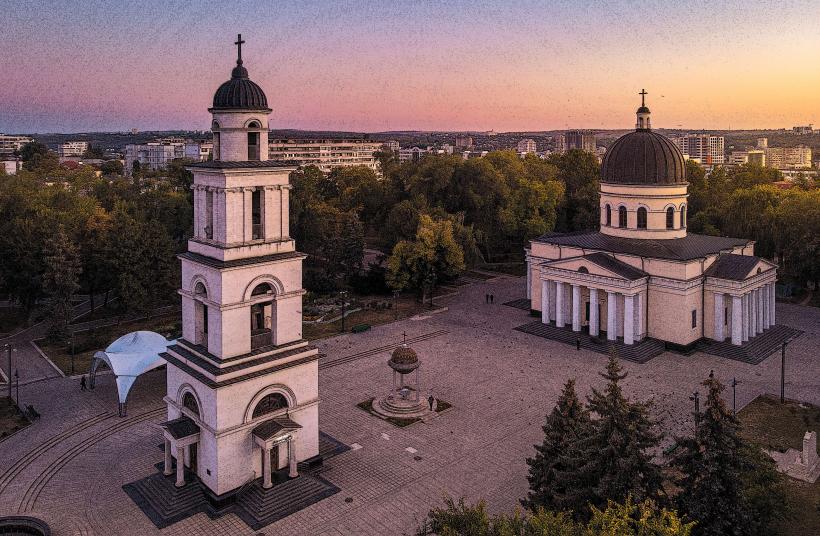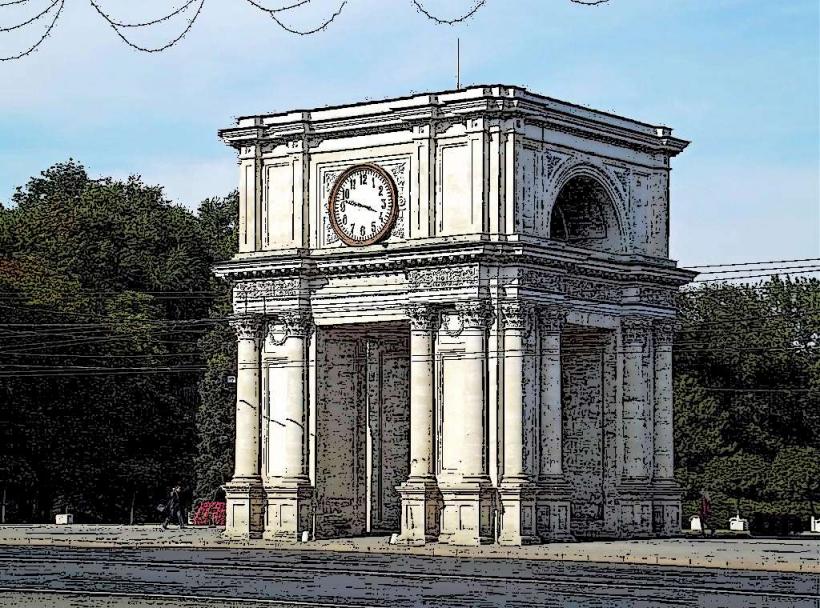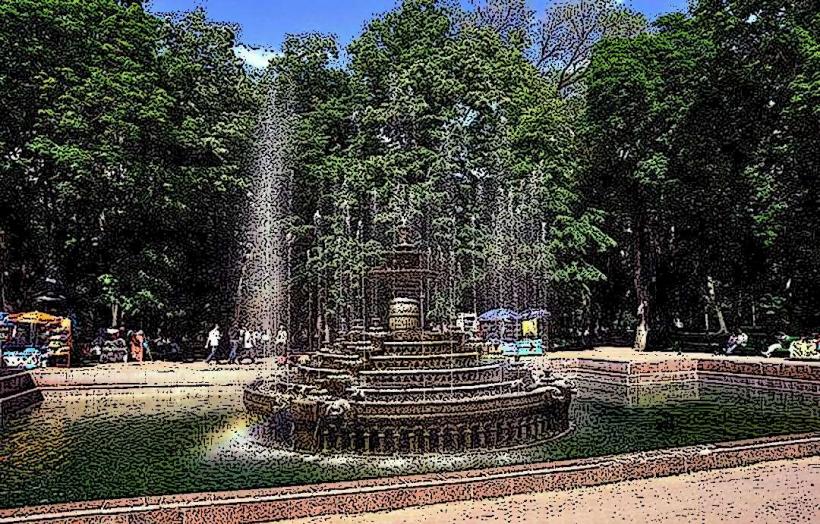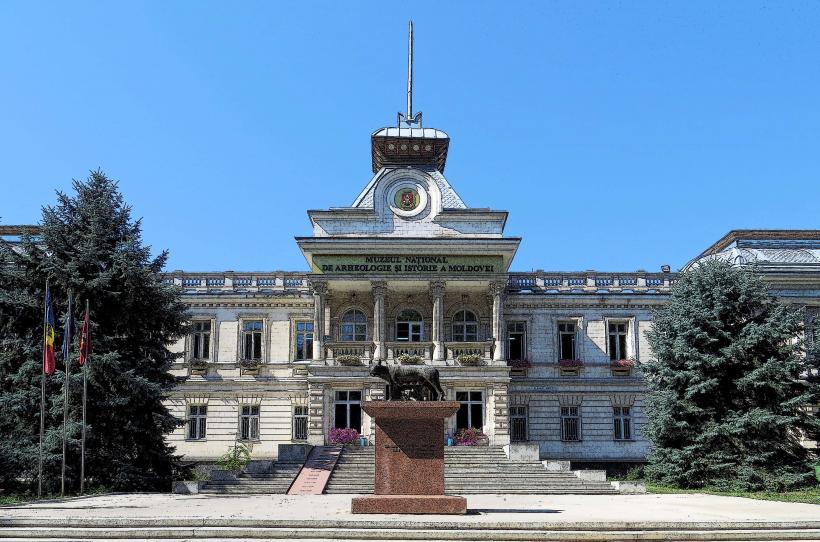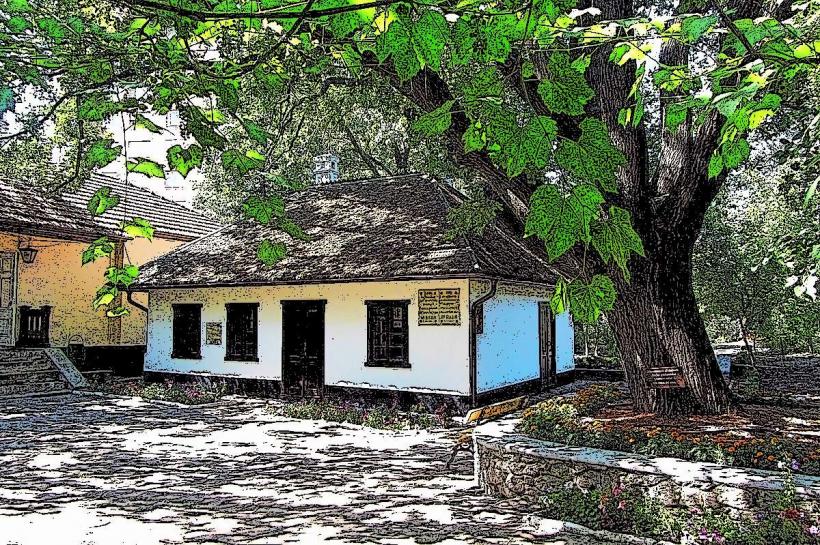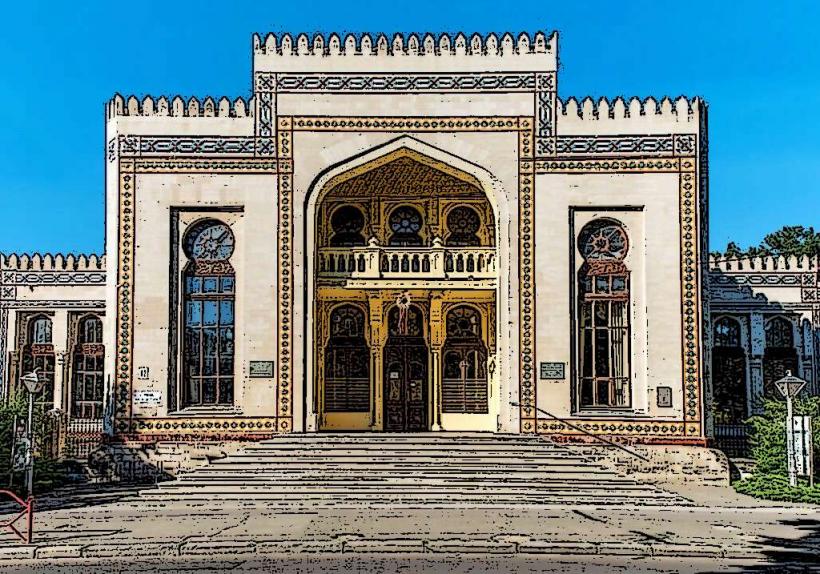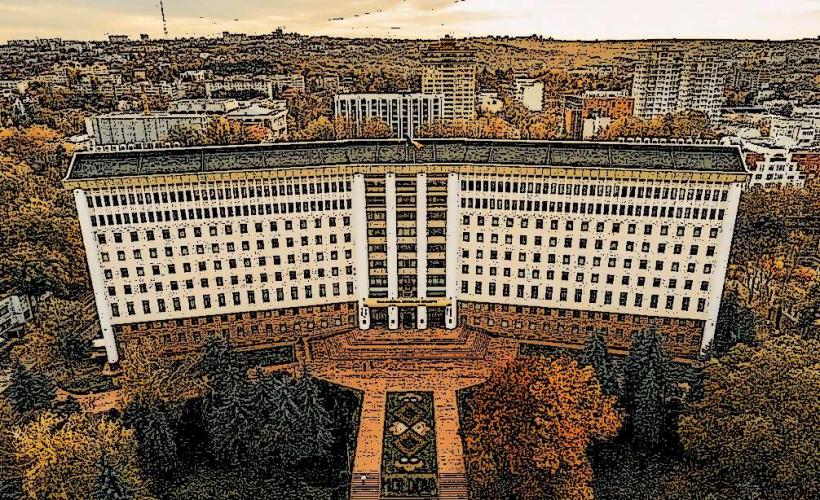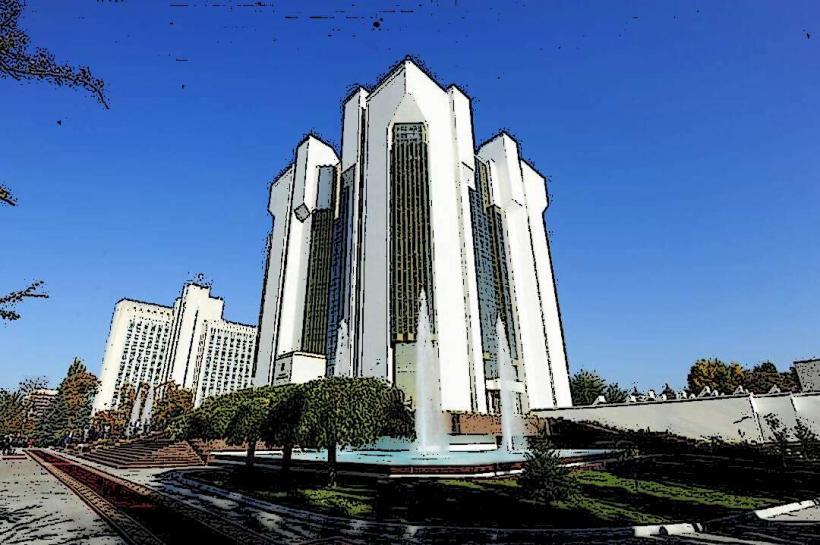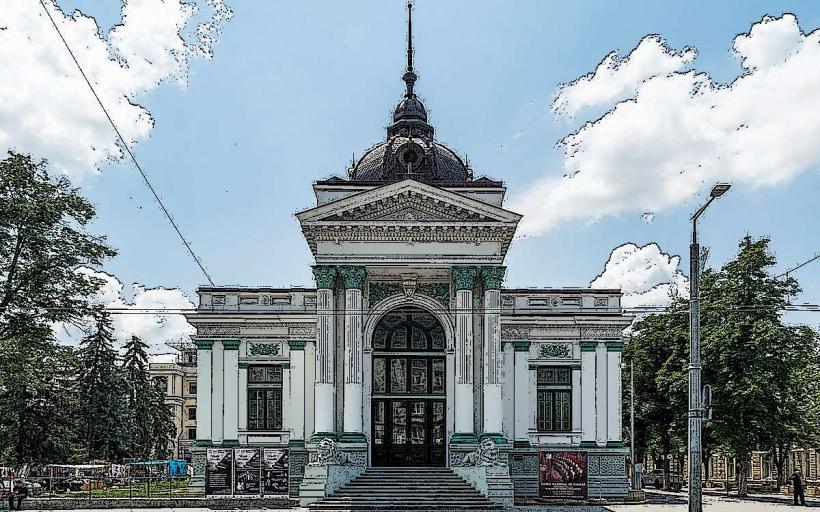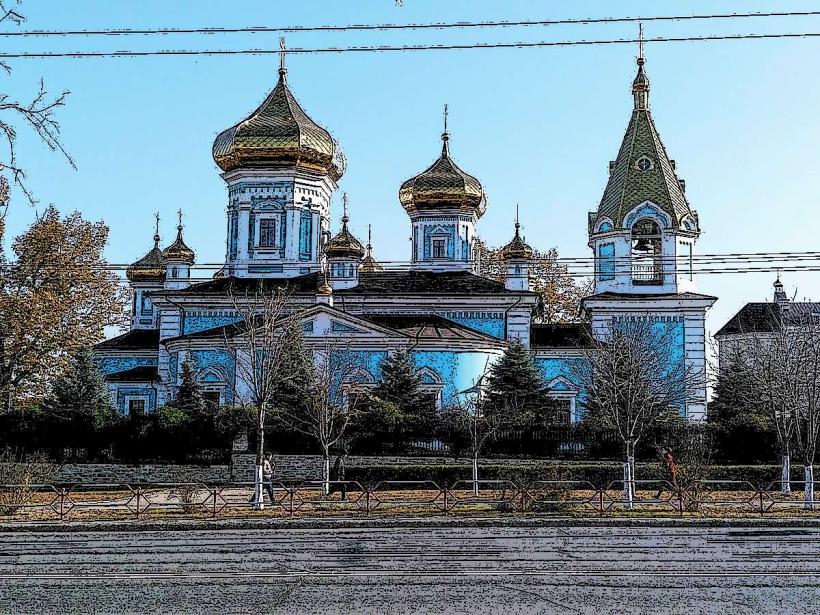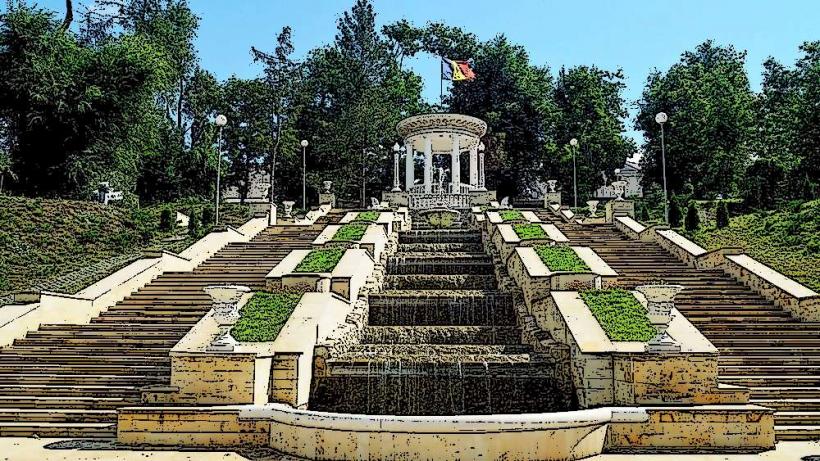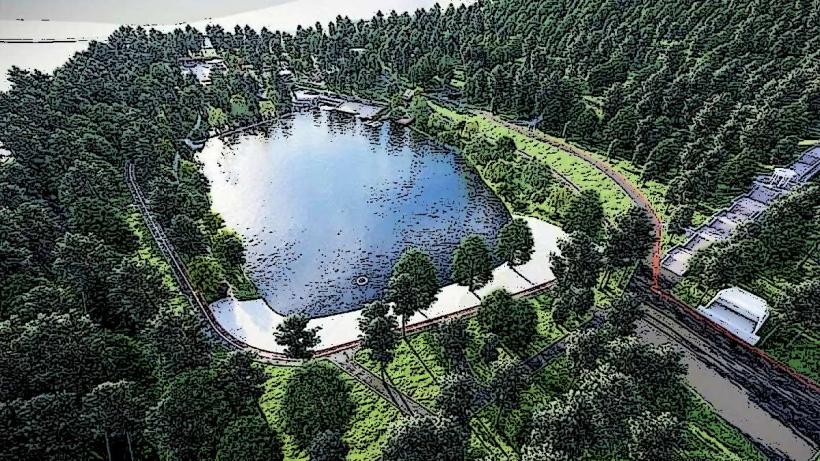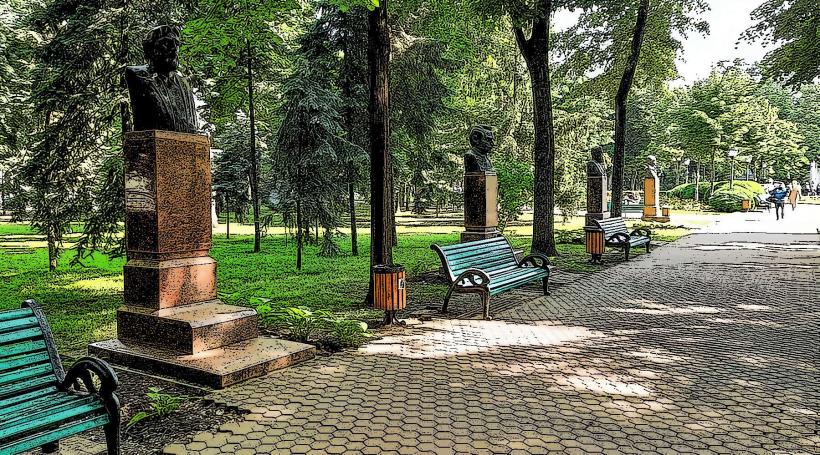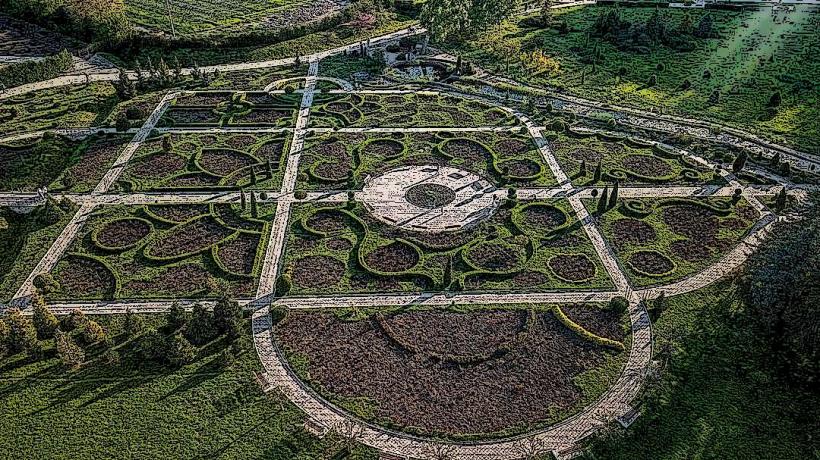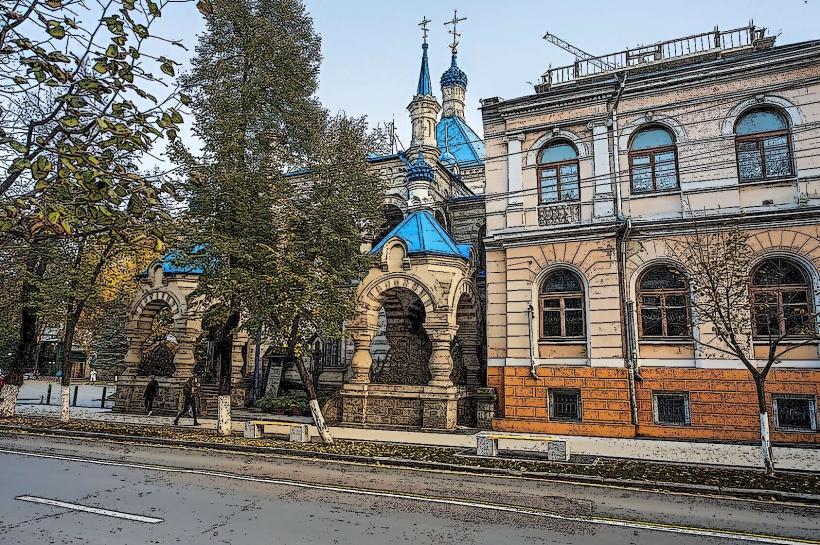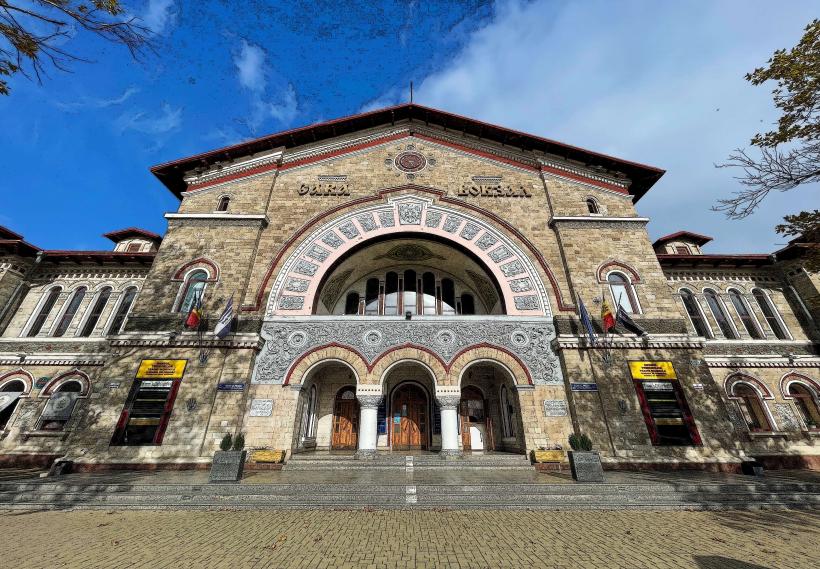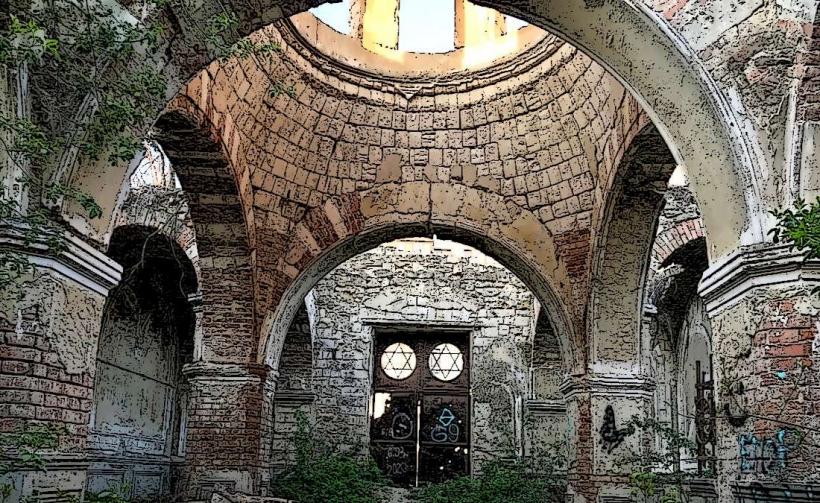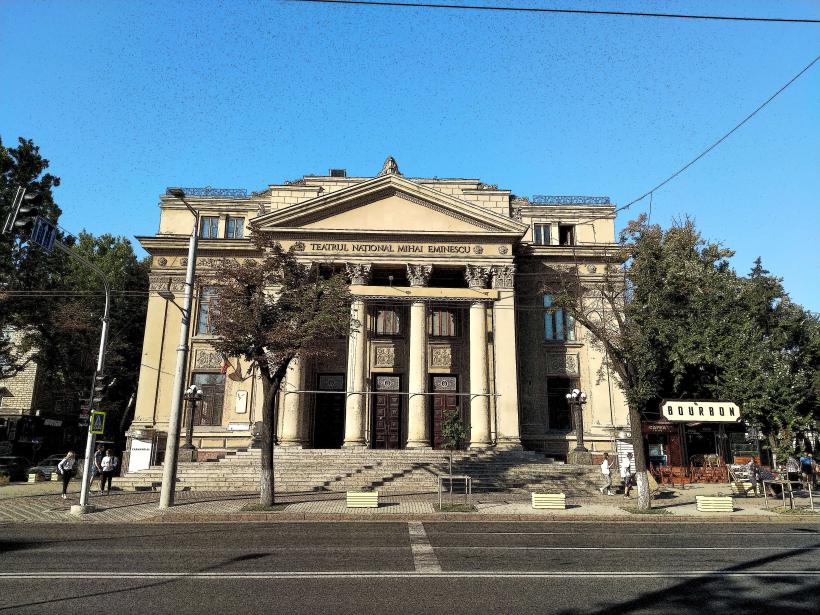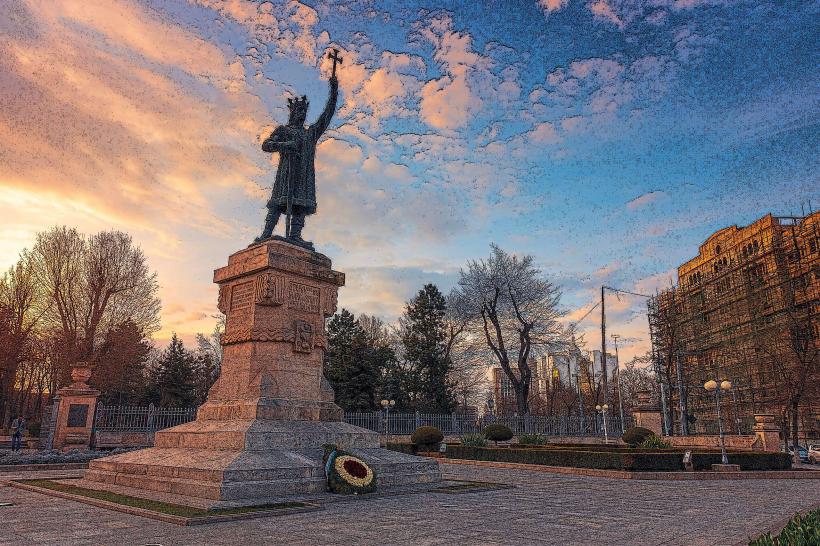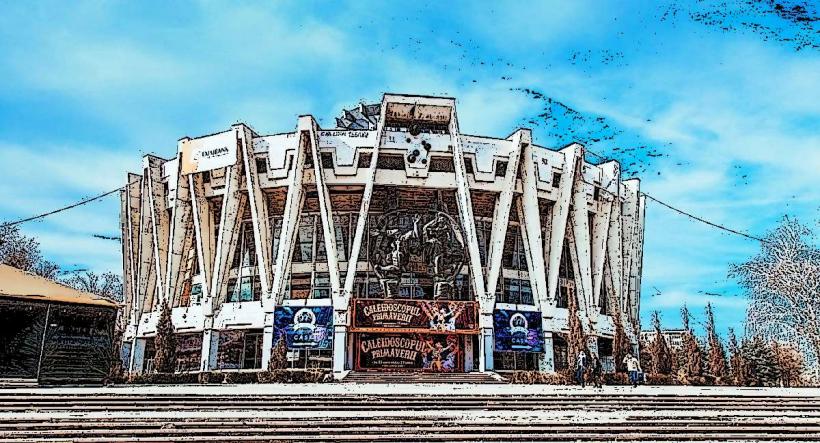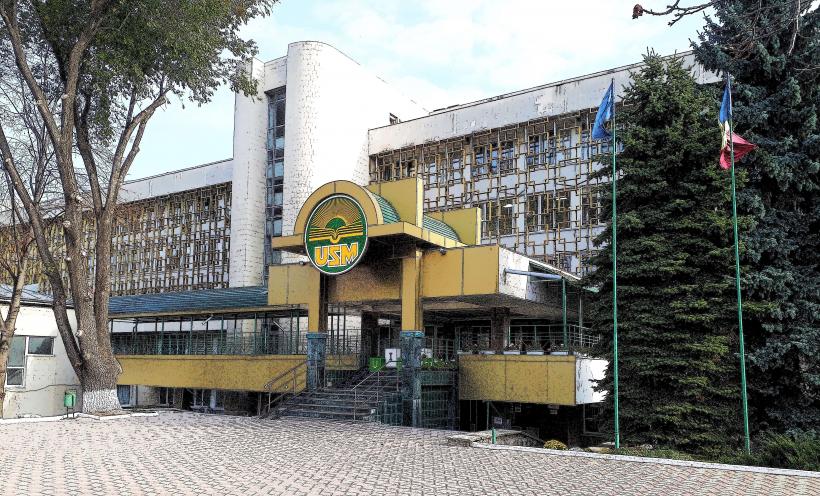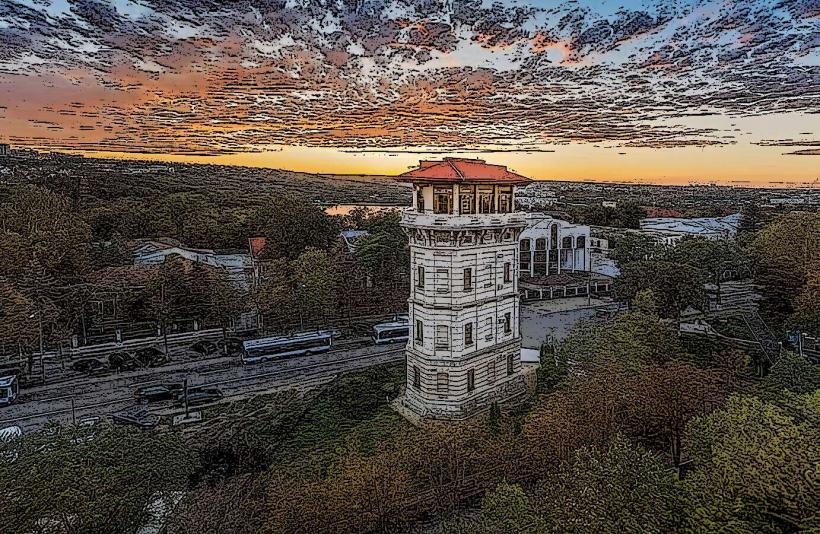Information
Landmark: Eternity Memorial ComplexCity: Chisinau
Country: Moldova
Continent: Europe
Eternity Memorial Complex, Chisinau, Moldova, Europe
The Eternity Memorial Complex is a monument dedicated to Soviet soldiers who died in World War II, located in Chisinau, Moldova.
Visual Characteristics
The complex features a central 25-meter tall pyramidal obelisk composed of five stylized rifles, constructed from grey granite. At its base, an eternal flame burns. The monument is flanked by two rows of six large, grey granite slabs, each depicting scenes of war and heroism in bas-relief. The overall color palette is dominated by dark grey and red, with the flame providing a constant focal point. The ground is paved with concrete and stone.
Location & Access Logistics
The Eternity Memorial Complex is situated on Dacia Boulevard, approximately 3.5 kilometers southeast of Chisinau's city center. Access is primarily via Dacia Boulevard. Limited street parking is available on adjacent smaller roads. Public transport options include trolleybus lines 4, 8, and 22, and bus lines 5 and 9, with stops located within a 200-meter walk of the complex entrance.
Historical & Ecological Origin
The memorial complex was constructed between 1971 and 1975. The architects responsible were A. Maiko and I. Poniatowski. Its original purpose was to commemorate the Soviet soldiers who perished during World War II, particularly those involved in the liberation of Moldova.
Key Highlights & Activities
Visitors can observe the Eternal Flame, which is maintained continuously. Walking paths allow for viewing the bas-relief sculptures on the granite slabs, which depict various stages and figures of the war. The complex is a site for official ceremonies, particularly on Victory Day (May 9th).
Infrastructure & Amenities
Restrooms are not directly available within the complex grounds; public facilities may be found in nearby commercial areas. Shade is limited, primarily provided by sparse trees along the perimeter. Cell phone signal (4G/5G) is generally strong throughout the area. Food vendors are not present within the complex, but small kiosks and cafes are located on Dacia Boulevard within a 500-meter radius.
Best Time to Visit
The complex is accessible year-round during daylight hours. For photography, late morning or late afternoon provides softer lighting conditions. May 9th (Victory Day) is a significant date for official ceremonies, attracting larger crowds. There are no specific tide requirements as it is an inland monument.
Facts & Legends
The eternal flame at the complex was lit from a flame brought from the Tomb of the Unknown Soldier in Moscow. A local tradition involves newlyweds visiting the complex to lay flowers, symbolizing respect for the past and hope for the future.
Nearby Landmarks
- Rose Valley Park: 1.2km North
- Chisinau Botanical Garden: 3.8km Southeast
- National Museum of Ethnography and Natural History: 3.0km Northwest
- Nativity Cathedral: 3.5km Northwest

